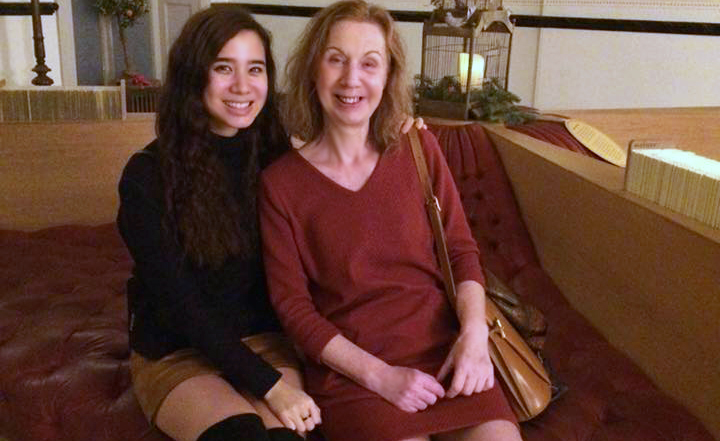Lessons I’ve learned from my immigrant mum (and her distinct unbritishness)
Our Digital Features Editor writes an ode to her mama


Our Digital Features Editor writes an ode to her mama
The struggle of being a first generation Brit is real.
While everyone else was growing up on Sunday roasts, Tetley tea and Christmas, I was feasting on dim sum, sipping jasmine tea and celebrating St. Nicholas day on December 6th.
And don’t get me started on the fact that I sometimes speak English as if English isn’t my first language - when it’s pretty much my only language. (Please don’t ask me to say the words ‘swollen’ or ‘drawer.’ )
My mum is Belgian and my dad is Chinese. But, I should probably tell you now that I’ve never called them ‘mum’ or ‘dad’. I grew up calling them ‘mama’ and ‘papa,’ thanks to French colloquialism.
Come to think of it, I've never had a conversation with either of my parents in their mother tongue (my mum, Flemish, and my dad, Cantonese). How weird is that!?
And although I am incredibly proud of my parent’s heritage, if you ask me where I’m from, I very much consider myself British. I was born in Croydon (shout-out) and have lived in south London (second shout-out) my entire life.
Celebrity news, beauty, fashion advice, and fascinating features, delivered straight to your inbox!
‘No, but, where are you actually from?’ is usually the follow-up question I get.
I don’t look like the majority of the population in Belgium or in Hong Kong – and I have ironically had racist comments made to me in both countries. But Britain gets me. Diversity is at the heart of Britain (um, let’s ignore Brexit for a minute, shall we?) and it’s always been home.
I ask people ‘how are you?’ even when I don’t necessarily care. I’ll apologise even if you’re the one who bumped into me and I will queue even if there isn’t a reason to queue. Because I’m as British as it gets.
My mother, however, is about as unbritish as you can imagine - and I love her for it.
But, no, it hasn’t always been easy.
Ask her how she is and she will give the god honest truth. If she’s having a bad day, you’re going to hear all about it. No British politeness with a shrug of the shoulders and an ‘I’m well, thanks, how are you?’ Just sheer bluntness.
That British embarrassment etiquette that makes us all go out of our way to please, and not offend, those around us? She ain’t got time for that.
Growing up, whenever my siblings and I had boyfriends and girlfriends, my mum would always insist on us taking photos with and without them. Younger me, who was so convinced I would end up with this puppy love boyfriend, was mortified. How could she not accept the fact that this boy was the love of my life and would be in my life forever?
Because she’s wise, that’s why. And, now when I look back at New Year’s Eve family photos from 2007, it’s a huge relief that I don’t have to look at my 17-year-old baggy clothes-wearing first boyfriend.
She also doesn’t beat around the bush. Growing up, this was tough. Where some would let you live in ignorance of your stupid mistakes or pitfalls, my mum would just bring them up. You know the expression ‘pink elephant in the room?’ Well, that’s never been a thing in our house.
When stuff went almighty wrong, I’d ask her to tell me everything was ok and she’d reply, ‘but I don’t know if they will be right now.’ Her brutal honesty wasn’t exactly comforting as a child but as an adult, I appreciate it. She doesn’t sugarcoat shit. If she doesn’t like something, she will straight up tell you.
Also, nothing got swept under the carpet in our household. We only had hard floors - literally and metaphorically.
Tact isn’t needed in the face of frankness.
And, let it be known that this is the opposite of me. I will grit my teeth and bear it until I’m in the comfort of my own personal space and then I will scream into a pillow or cry into my duvet. But complain to your face? I wouldn’t imagine doing such a thing.
On the flip side, my mum also has that fire and passion often attached to Latin American stereotypes. (God help anyone who crosses any of us.) This meant I had the most hugs, kisses and outwardly shown love than any other child I knew. Where traditional British conventions hint towards emotional shyness, I had access to my mum’s emotions in droves.
And these days, although I have inherited somewhat of a stiff upper lip from nature, I’m learning to be a little less British through nurture – and it’s surprisingly liberating.
